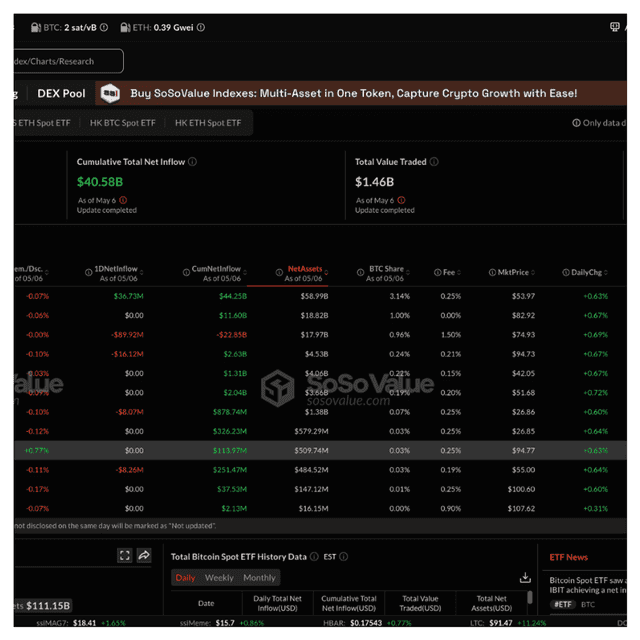2025-05-06 08:15
블록미디어
![[Securities Analysis] Will KOSPI Trend Rebound Amid FOMC Focus and U.S.-China Negotiations?](/_next/image?url=https%3A%2F%2Fwww.blockmedia.co.kr%2Fwp-content%2Fuploads%2F2024%2F11%2F%25EC%25A0%259C%25EB%25AA%25A9%25EC%259D%2584-%25EC%259E%2585%25EB%25A0%25A5%25ED%2595%25B4%25EC%25A3%25BC%25EC%2584%25B8%25EC%259A%2594_-002-1.png%3Fformat%3Dwebp%26width%3D600&w=1200&q=70)
출처: Block Media
# KOSPI Nears 2,560 Amid 3-Week Rally; Foreign Investors Return as Net Buyers for the First Time in Six Weeks
The KOSPI index surged for a third consecutive week, nearing the 2,560 mark, driven by optimism surrounding U.S.-China tariff negotiations. Despite concerns over tariffs impacting South Korea’s April export data, resilience in sectors less affected by trade measures provided support.
Investors are set to closely monitor the Federal Reserve's (Fed) economic analysis this week amid rising expectations for a rate cut. Although hope for U.S.-China trade progress fuels optimism, worries over a slowdown in Q2 economic indicators and increased domestic political uncertainty limit expectations for a sustained rally.
# KOSPI Posts 3-Week Gain, Boosted by Positive Sentiment on Tariff Talks
On May 2, the KOSPI climbed 13.49 points (0.52%) week-on-week, closing at 2,559.79, marking its third consecutive weekly gain. Comments from U.S. President Donald Trump hinting at the conclusion of trade negotiations within three to four weeks, along with a potential easing of auto-part tariffs, alleviated trade-related concerns.
However, with no solid progress in the talks, the market’s focus shifted to earnings performance and sector-specific catalysts. South Korea’s April exports rose 3.7% year-on-year, but exports to the U.S. fell 6.8%, and auto exports dropped 3.8%, highlighting the tariffs' impact. This weighed on major large-cap stocks, yet securities firms experienced sharp gains on Q1 earnings optimism, while media and entertainment stocks rallied on hopes for the lifting of China's "Hallyu ban."
Foreign investors returned as net buyers in the KOSPI market, with 268.1 billion won ($202 million) in net purchases, the first in six weeks. Meanwhile, institutional investors turned net sellers after five weeks, selling off 387.1 billion won ($292 million), while retail investors recorded 138.1 billion won ($104 million) of net purchases.
Sector-wise, securities (+9.38%), entertainment (+8.75%), construction (+4.03%), insurance (+3.91%), and financials (+3.65%) outperformed the broader market, while transportation/storage (-2.19%), paper/wood (-2.13%), and electrical/electronics (-1.85%) underperformed.
Conversely, the KOSDAQ index dropped 7.83 points (1.07%) to 721.86, its first decline in four weeks.
# Fed Meeting and Economic Indicators Set to Influence Sentiment
This week, the Federal Open Market Committee (FOMC) meeting on May 8 Korean time will be crucial. While the Fed is expected to keep interest rates steady, markets will scrutinize its assessment of the Trump administration's impact on growth and inflation.
The U.S. economy contracted by 0.3% year-on-year in Q1, showing signs of slowing demand. Core personal consumption expenditures (PCE) inflation for March rose at its slowest pace in six months, increasing prospects for a rate cut. However, robust April employment data released on May 2 reduced expectations for a June rate cut, suggesting a more stable policy stance in the coming months.
Kim Yoo-mi, a researcher at Kiwoom Securities, stated, “With ongoing tariff policy uncertainties, a buffer against potential economic headwinds is necessary.”
Adding to the bullish sentiment, U.S. Treasury Secretary Steven Mnuchin announced plans to pass tax-cut legislation by July 4, fueling anticipation for fiscal policy measures.
China’s response to U.S. overtures, noting that it is currently “evaluating” the message, bolstered hopes for progress in tariff negotiations. Optimism around U.S.-China talks and strong U.S. jobs data spurred a sharp rally in U.S. equities. On May 2, the S&P 500 logged its first nine-session winning streak since 2005, while all three major New York indexes posted significant gains.
# Cautious Optimism Amid Persistent Risks
Despite recent gains, cautious sentiment persists as tariffs impact Q2 economic indicators. The Institute for Supply Management (ISM) U.S. services index for April, set for release on May 5, is projected to slightly decline to 50.4 from 50.8 in March.
Kang Jin-hyuk, a researcher at Shinhan Investment Corp., noted, “With Big Tech earnings season concluding and a U.S. holiday ahead, macroeconomic data and tariff developments will shape market dynamics. Both the U.S. and China are starting to reveal the economic toll of trade frictions, heightening sensitivity to data releases.”
Domestically, political uncertainty surged as successive resignations of acting South Korean presidents deepened volatility in politically sensitive stocks.
Cho Byung-hyun, a researcher at Daol Investment & Securities, commented, “Market expectations for reaching new highs remain limited, with industry- and company-specific momentum set to dominate trading activity.”
NH Investment & Securities forecasts that KOSPI will fluctuate between 2,480 and 2,650 this week.
# Key Economic Releases and Events for the Week (Korean Time)
- May 5: U.S. April ISM Services PMI, U.S. April S&P Global Composite/Services PMI, Korean markets closed
- May 6: U.S. March trade balance, China April Caixin Composite/Services PMI, Korean markets closed
- May 7: Eurozone retail sales for March, Bank of Korea (BOK) April monetary policy meeting minutes
- May 8: Fed May FOMC meeting, U.S. March wholesale inventories
- May 9: China April exports and imports, South Korea March current account balance
View original content to download multimedia: https://www.blockmedia.co.kr/archives/901650




